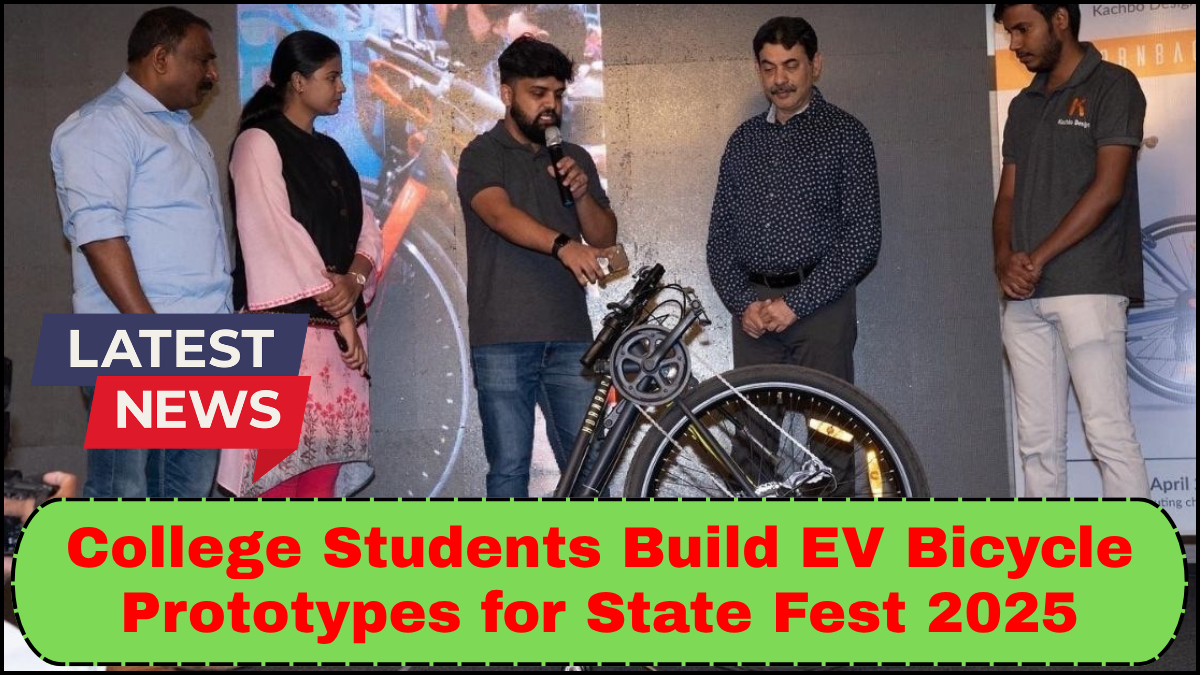As the push for clean energy and sustainable transportation gains momentum, student EV projects are emerging as key contributors to innovation. In anticipation of State Fest 2025, engineering and design students from across multiple colleges are taking the challenge head-on by developing electric bicycle (EV) prototypes that blend eco-friendly technology with smart design. This initiative isn’t just an academic exercise—it reflects a broader movement in campus innovation to solve real-world challenges.

From Classroom Concepts to Campus-Built EV Bikes
The electric bicycle prototypes under development represent more than just mechanical ingenuity; they are the result of multidisciplinary collaboration among students in mechanical engineering, electrical engineering, industrial design, and even software development. Participating colleges have formed dedicated student teams tasked with designing, building, and testing fully functional EV bikes tailored for urban mobility.
Each team is working within a set of parameters set by the State Fest 2025 committee, including range, weight, battery efficiency, charging speed, and affordability. Some colleges are incorporating regenerative braking systems, while others are pushing for modular battery packs and lightweight composite frames that reduce the bike’s carbon footprint.
Embracing the Spirit of Campus Innovation
One of the defining aspects of these student EV projects is how deeply they’re rooted in the culture of campus innovation. Universities are providing full access to 3D printers, CNC machines, CAD software, and electronics labs, allowing students to move rapidly from ideation to prototyping.
Hackathons and internal design contests are also being organized to keep the momentum going, rewarding teams for unique features such as smart app integration, anti-theft systems, or solar charging options. This hands-on experience is fostering not only technical know-how but also project management, teamwork, and entrepreneurial thinking.
Environmental Awareness Meets Practical Design
A key motivator behind these EV bicycle prototypes is environmental responsibility. Students are keenly aware of the growing need for clean transportation in cities facing congestion and pollution. By focusing on bicycles rather than larger electric vehicles, they’re tackling the micro-mobility sector—offering a low-cost, high-impact solution for daily commuting.
Some prototypes include IoT-based diagnostic systems that track usage, battery health, and maintenance needs in real time. Others feature adjustable power modes, allowing users to shift between eco, standard, and performance settings. These student-designed bikes are being built with not just performance, but also user experience and sustainability in mind.
Partnerships and Mentorship Fuel Student EV Projects
Industry partnerships are playing a pivotal role in elevating the scope of these projects. Several colleges have secured sponsorships from EV startups, battery manufacturers, and transportation think tanks. These partnerships often come with mentorship from industry engineers who guide students in system design, component sourcing, and product testing.
Additionally, some institutions are collaborating with city councils to align the prototypes with local transportation policies. There are even discussions to pilot a few of the most promising bikes in select urban areas post-festival, turning a student initiative into a potential community asset.
Looking Beyond the Festival
While the main event is the State Fest 2025 showcase, where prototypes will be judged on performance, innovation, and design, many students see this as a stepping stone. The long-term goal for several teams is to transform their EV bicycle into a market-ready product.
Some students are planning to launch startup ventures post-graduation to refine and commercialize their designs. Incubation centers within colleges are already showing interest, offering seed funding and mentorship to help teams take their ideas forward.
FAQs
Q1. What are student EV projects?
Student EV projects are initiatives led by college students to design and develop electric vehicles, often as part of academic programs, competitions, or campus innovation challenges.
Q2. Why focus on electric bicycles instead of electric cars?
Electric bicycles offer a more affordable, accessible, and sustainable solution for urban commuting. They require less infrastructure, are easier to maintain, and have a lower environmental impact.
Q3. How are these projects funded?
Funding typically comes from a mix of university support, government grants, and private sponsorships from companies involved in green technology or transportation.
Q4. What makes these campus innovations unique?
The innovation lies in the multidisciplinary approach—combining engineering, design, and sustainability—along with a student-driven passion to solve real-world mobility issues creatively and practically.
Q5. Will any of these prototypes go into production?
Some teams aim to commercialize their EV bike prototypes after State Fest 2025. With interest from startups and incubators, a few of these student EV projects could evolve into fully-fledged products in the near future.
click here to learn more